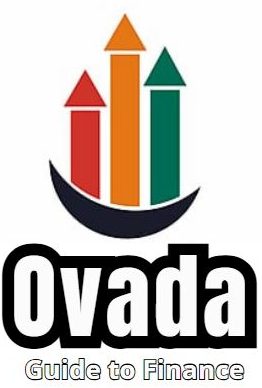
Financial decisions influence not only the present, but also the future. The salaries are spent quickly, inflation erodes the purchasing power and consumer temptations are more present. However, the secret of financial stability does not consist of enormous gains, but in the intelligent management of personal finances. Financial education is not a «luxury» for specialists, but it is a basic competence i. If you have ever said «I don’t know where my money» or «I would like to save, but fail», this guide is for you. In the following lines you will find, step by step, how to do a budget, how to save, how to get rid of debts and how to lay the basics of financial independence.
What is financial education?
Financial education is the set of knowledge, skills and behaviors that help you manage your money responsible. Includes:
- Administration of the personal budget-like to plan your income and your expenses;
- Savings: how to raise funds for future objectives;
- Investments: How to multiply resources through safe and intelligent investments;
- Debt management: how to use responsible credit and avoid overload;
- Financial planning: how to create a long -term plan for important objectives (home, pension, children’s education).
In other words, financial education gives you control of your money, not vice versa.
Why is financial education important?
Financial education is important because it directly influences the quality of life and our long -term stability. Here are the main reasons:
Prevents financial stress and uncertainty
Many people live from one salary to another because they don’t know how to manage their entrances. With good financial education, you learn to plan your budget, avoid unnecessary debts and manage unexpected situations.
Provides control and independence
When you know how to manage your money, you do not depend exclusively on the salary and you are not vulnerable to economic changes. You can build passive income, savings and investments that give you freedom.
Help you save and invest effectively
Financial education does not only mean putting money aside, but choosing the best saving and investment methods, both in bank deposits, common funds or shares. Therefore, your money is starting to work for you and you will benefit from currency quotations, from developments on the financial market, from geopolitical events and so on.
Supports intelligent decisions
From the contract a mortgage to the choice of insurance or pension planning, financial education gives you clarity. Learn to evaluate risks and benefits, avoiding expensive errors.
Contributes to the well -being of the family and society
A financially educated person transmits these habits to his children, building a healthy culture of money. At the level of society, several financially informed people mean a more stable and prosperous economy.

Fundamental phase for money management
The intelligent use of money is an essential capacity for anyone who wants to achieve financial stability and, in the long term, financial independence. Regardless of the level of income, what makes the difference is not what you earn, but how you manage your personal finances. Here are the phases you have to pass:
Establishes the financial objectives
The first step to manage money is to know what you want to get. Without clear objectives, expenses and economies will have no indications. Here are some examples of financial objectives:
- Savings for an emergency fund;
- the acquisition of a house;
- financing of children’s education;
- retirement preparation;
- Build financial independence.
The objectives you propose must be intelligent: specific, measurable, achievable, relevant and framed.
Create a personal budget
A balanced personal budget represents the basis of any financial planning. It clearly shows you how much you earn, how much you spend and how much you can save. Here are the most popular budget methods:
- Rule 50/30/20 – 50% for needs, 30% for desires, 20% for savings and investments;
- zero -based budget – Each lion is planned and assigned to a category;
- Budgeting by fixed categories: mandatory, flexible and savings.
Builds an emergency fund
A crucial step is to have money aside for unexpected situations (disease, work loss, important repairs). The emergency fund must cover between 3 and 6 months of essential expenses.
Manages and decreases debts
Unjected debts can seriously affect financial stability. Taking into account:
- Payment of debts of high interest (credit cards, consumer loans) as soon as possible;
- the use of debt snowball strategies (starting from the smaller debts) or debt avalanches (starting from the most expensive interest);
- Avoid loans for unnecessary expenses.
Constantly save
The key to financial success is not only the gain, but also the ability to save disciplined. Save a fixed percentage of monthly income, even if it is small. It deals with savings as a compulsory, not optional expenditure.
Invest intelligently
After having an emergency fund and you don’t have a great debt, you can start investing. Investments put your money at work and accelerate the growth of wealth.
Forms of investment:
- bank deposits and savings funds;
- Common funds and ETF;
- Actions and ties;
- real estate;
- their activities.
Protect yourself through insurance
A complete financial plan also includes insurance. They protect the family and heritage in front of the main risks: health, life, accommodation, cars or even income for inability.
Long -term planning
The last phase is to create a long -term financial strategy. This includes:
- Pension planning;
- transmission of the heritage to the family;
- sustainable and diversified investments;
- Financial education continues.

Myths that can sabotage financial success
Financial success does not depend only on how much money you earn, but also on the mentality, the habits and decisions you make daily. Unfortunately, many people limit their possibilities of prosperity because they are influenced by financial myths in society.
Financial myth 1: «You have to win a lot to become rich»
This is one of the most dangerous financial myths. The reality is that not the great income makes you rich, but the way you manage your money. A person with an average salary, but who spares constantly and invests intelligently, can become more prosperous than someone with high income, but chaotic expenses. Financial education and discipline weigh more than the figure in the wage butterfly.
Financial myth 2: «Economies are sufficient, investments are risky»
Many believe that keeping the money «under the mattress» or only in an income statement does it protect them. In reality, inflation reduces the value of money over time. The lack of investments means the lack of financial growth opportunities. Investments should not be risky if they are diversified and informed: mutual investment funds, bonds, ETFs, properties, etc.
Financial myth 3: «If I have debts, I can’t save»
Another myth that blocks financial progress is the idea that savings are impossible until debts are paid. In fact, you can reimburse the debts and, in parallel, put aside a small amount for the emergency fund. Therefore, you will not depend on new loans if an unexpected situation occurs.
Financial myth 4: «You have to work hard for money for money»
Work is important, but money must also work for you. If you rely only on the salary, your income is limited to your time and your commitment. Without passive income sources (investments, rentals, business), you will always be in a continuous race. The key is to create more sources of income, not only to work more.
Financial myth 5: «Financial education is only for experts»
Many believe that only bankers or investors in stock exchange needed financial knowledge. The truth is that each person needs a minimum of financial education to make the right decisions. The budget, savings and basic investments are essential skills for anyone who wants financial independence.
Financial myth 6: «luck makes the difference, not discipline»
There is the perception that the rich are lucky. In fact, financial success is built in the long term through healthy habits: planning, savings, investments. Luck can help, but discipline and perseverance are decisive factors.
These financial myths may seem harmless, but in reality they can satisfy the way to prosperity. To achieve financial success, educate yourself constantly, build healthy habits and think in the long term.
Financial education is not an optional question, but a skill that can change your life. You don’t have to become an expert during the night, but every small step matters: a simple budget, a constant monthly economy, a faster debt. Financial success does not come from luck, but from discipline and consistency. Your financial future begins with the decisions you make right now!
latest posts published

Hormones that determine financial behavior while making decisions under their influence

Payment methods Credits for consumption are getting rid of debt

Financial education for beginners – Cursvalutar.ro

What are the banking guarantees and what risks has a guarantor

Credit Bureau – Everything you need to know

Comfortable contract: taxes and exemptions

What they are and how it works

Strategies to withdraw money from investments

How to have a day without spending?


